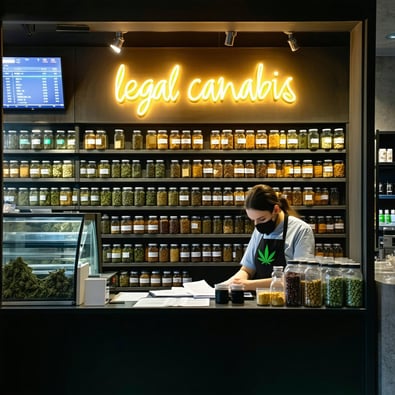Canada’s cannabis excise tax has more than doubled in terms of its share of producer revenue since legalization, creating a financial crisis that has pushed multiple companies into bankruptcy, according to a new industry report.
The study by Deloitte and the Cannabis Council of Canada found excise tax consumed 24.3% of total gross revenue for licensed producers in 2024, up from 11.2% in 2019. For cannabis production revenue specifically, the tax burden reached 31.5%.
The problem stems from Canada’s tax structure, which was designed when wholesale prices averaged around $10 per gram but remained unchanged as prices fell to about $3 per gram.
Canada’s excise tax charges either $1 per gram or 10% of the producer’s selling price, whichever is higher. As wholesale prices collapsed from $5.81 per gram in April 2019 to $3.09 per gram in December 2024, the flat-rate component became increasingly punitive.
Only 14.3% of cannabis companies analyzed showed positive net income in fiscal 2023. If excise tax were calculated at 10% of sales, that figure would double to 28.6%, researchers said.
Nine companies filed for insolvency between fiscal 2022 and 2024. The Canada Revenue Agency wrote off $4.7 million in unpaid excise tax through September 2024.
“The excise tax is often the largest single expense item for cannabis producers,” the report states.
The federal government’s 2024 Cannabis Act Review recommended Finance Canada “consider a review of the excise tax model, recognizing that it was originally designed when the average price of dried cannabis was significantly higher than it is today.”
Paul McCarthy, president of the Cannabis Council of Canada, said the current system threatens legal market growth.
“When this was designed we were selling at approximately $10 per gram in the medicinal channel, so the $1 per gram part of the formula made sense,” McCarthy said. “Today, Licensed Producers sell their products for approximately $3 per gram.”
The April 2024 federal budget did not address excise tax reform.
The high tax burden may strengthen illicit competitors, industry officials said. Previous studies estimated the black market accounts for 25% to 52% of Canada’s total cannabis market.
Cannabis faces a much higher tax burden than alcohol, reaching about 18% of retail sales in 2022, compared to roughly 6% for beer and 14% for spirits.
“The cannabis industry will struggle to capture the remaining share of the illicit market unless the excise duty is adjusted to a uniform 10% as originally intended,” said Nuances MJ, a licensed producer.
The federal government has collected more than $2.5 billion in cannabis excise tax since legalization, with about $2 billion returned to provinces.
The study analyzed financial data from 36 licensed cannabis producers from 2019 to 2024.





